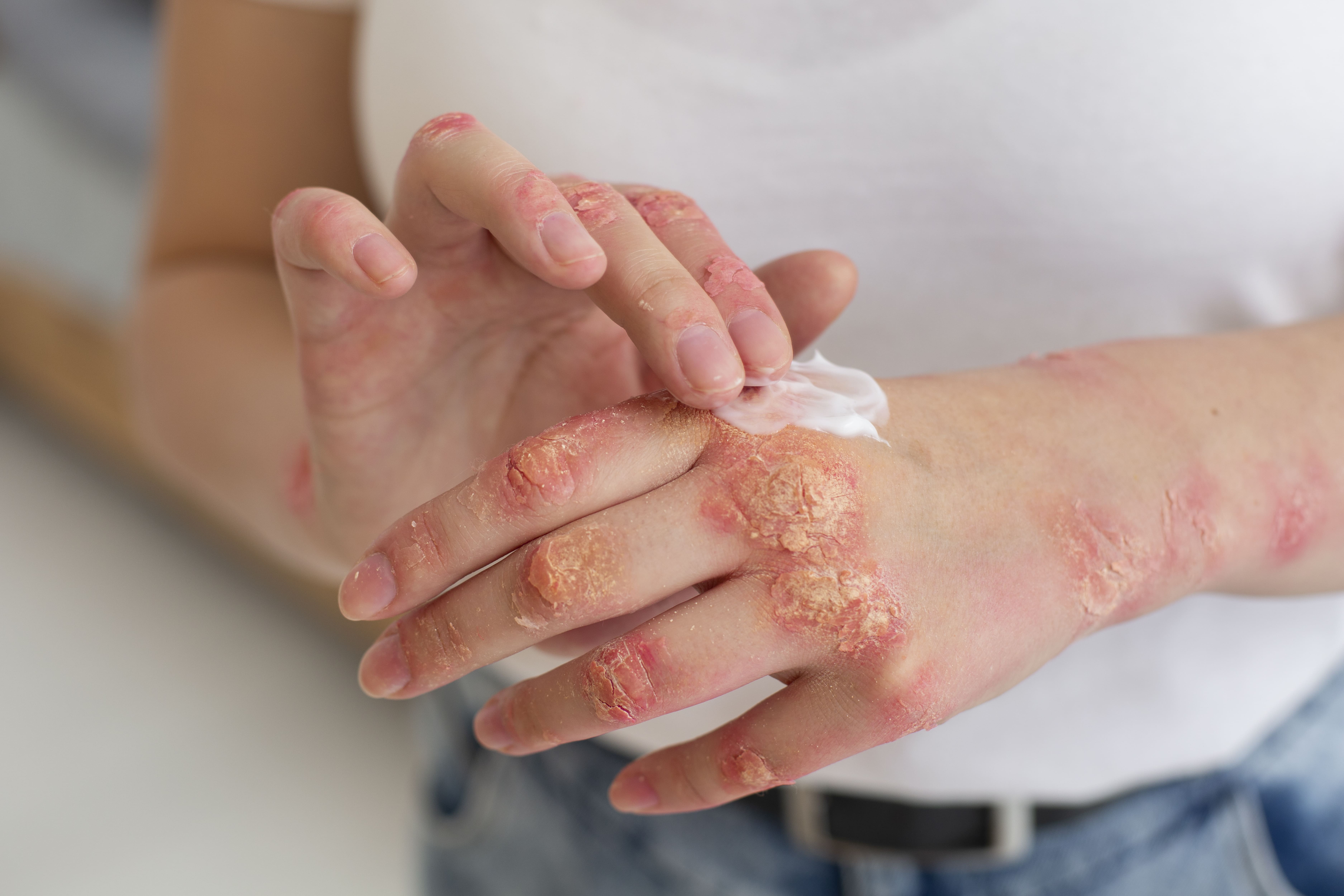Effective Ayurveda for Psoriasis: Natural Solutions for Lasting Relief
Psoriasis is a chronic autoimmune condition characterized by the rapid buildup of skin cells, leading to the formation of thick, red, and scaly patches on the skin's surface. These patches can be itchy, painful, and may crack and bleed. Psoriasis is thought to occur due to a combination of genetic, environmental, and immune system factors. While there is no cure for psoriasis, various treatment options such as topical medications, phototherapy, and systemic medications can help manage symptoms and reduce flare-ups.
Causes: Psoriasis is primarily considered an autoimmune disorder where the immune system mistakenly attacks healthy skin cells, speeding up the skin cell turnover process. However, the exact cause of psoriasis is not fully understood. Genetic factors play a significant role, as it tends to run in families. Environmental factors such as stress, infections (particularly streptococcal infections), certain medications (like lithium, beta-blockers), and injuries to the skin (like cuts or sunburns) can trigger or exacerbate psoriasis symptoms in susceptible individuals.

Symptoms: Psoriasis typically presents as raised, red patches of skin covered with silvery scales, known as plaques. These plaques can appear anywhere on the body but are most commonly found on the elbows, knees, scalp, and lower back. The plaques may be itchy, painful, or both, and they can crack and bleed. Psoriasis can also affect the nails, causing pitting, discoloration, and thickening.
Types
There are several types of psoriasis, each with its own distinct characteristics:
Plaque Psoriasis
The most common form, characterized by raised, red plaques covered with silver-white scales.
Guttate Psoriasis
Appears as small, red spots, often triggered by bacterial infections like strep throat.
Inverse Psoriasis
Affects skin folds like the armpits, groin, and under the breasts, appearing as smooth, red patches.
Pustular Psoriasis
Characterized by pus-filled blisters surrounded by red skin, often accompanied by fever and chills.
Erythrodermic Psoriasis
A rare but severe form that causes widespread redness, shedding of the skin, and severe itching or pain.
Scalp Psoriasis
Psoriasis on the scalp has a silvery gloss and looks powdery.
Treatment: While there is no cure for psoriasis, various treatment options can help manage symptoms, reduce inflammation, and slow down skin cell turnover. Treatment approaches may include:
Topical Treatments: Corticosteroids, vitamin D analogs, retinoids, coal tar, and calcineurin inhibitors applied directly to the skin.
Phototherapy: Exposure to ultraviolet (UV) light under medical supervision, either with natural sunlight or artificial light sources like UVB phototherapy or PUVA (psoralen plus UVA) therapy.
Systemic Medications: Oral or injectable medications like methotrexate, cyclosporine, retinoids, or biologic agents that target specific immune pathways involved in psoriasis.
Lifestyle Modifications: Managing stress, maintaining a healthy weight, avoiding triggers like smoking and excessive alcohol consumption, and practicing good skincare habits can help manage psoriasis symptoms.
Conclusion: Psoriasis is a chronic autoimmune condition that requires long-term management and care. By understanding the causes, symptoms, and treatment options for psoriasis, individuals can work with healthcare professionals to develop personalized treatment plans aimed at controlling symptoms, reducing flare-ups, and improving overall quality of life. Early diagnosis and intervention are crucial in effectively managing psoriasis and minimizing its impact on daily life.